Graham Reid | | 7 min read
Ocean Colour Scene: The Riverboat Song (from Moseley Shoals)
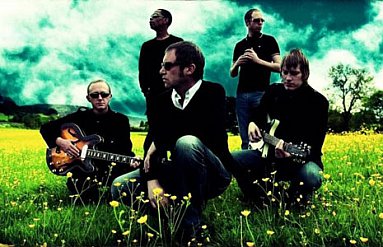
From the outside – even on the rather mundane inside -- the
Irish Centre on Birmingham's dreary, windswept Digbeth High St
doesn't look like the city’s premier rock’n’roll venue.
And it’s probably not, but . . .
“Yeah, the history’s here though,” says Ocean Colour Scene’s
lanky frontman Simon Fowler as he sits in a cramped room backstage
after a lengthy afternoon soundcheck.
It was here he and guitarist Steve Cradock saw the Stone Roses and
immediately formed a band. Cradock -- a Jam fan who ended up playing
in Paul Weller’s touring band and on his recent albums (and is
credited with redirecting Weller away from Eurosoul back into classic
English r’n’b pop) played the Irish Centre with his previous
outfit the Boys supporting former Small Face Steve Marriott, another
of Ocean Colour Scene’s favourite musical uncles.
So while it might not look much, the venue in the Irish part of
town has considerable personal resonance for this four-piece.
“All the bands we’ve been in – and this one – have aspired
to play the Irish Centre,” says the highly likable Fowler as he
makes room on the two-seater couch for the sixtysomething, former
Special and legendary trombonist Rico, who is joining them for the
gig.
“The next venue up from here I suppose is the NIF, which takes
3500 people, so when you’re in a band that’s getting hopefully
known and you’ve played the small clubs, where else can you go?
This place was always the one, takes about 800 . . . official
capacity," he offers as a sly afterthought, secure in the
knowledge that tonight’s gig will well exceed that.
“So the next one up is a sports venue or something. That’s why
we’re filming this . . . it could be the last time we get to play
venues of this size. We’re going to try to put together some kind
of Pennebaker,” he says, referring to the film-maker who captured
Dylan’s 65 solo tour of Britain on Dont Look Bock.
“This is an unusual time for us. We’ve never had a time like
this before.”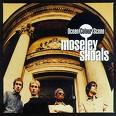
Indeed not, because Ocean Colour Scene’s emergence with the
rollicking r’n’b-influenced Moseley Shoals -- the title a
reference to their studios in nearby Moseley St and the famous Muscle
Shoals studios in Alabama -- has put them back on the map of public
consciousness after a five-year absence.
OCS emerged in the early Nineties as part of the post-Manchester
baggy scene. They made some singles, were nobbled when their small
label was sold out from under them (band manager Chris Cradock has
some unpublishable comments about what he’d like to insert in a New
Zealander involved in that debacle), sold a few copies of their debut
album, toured America and had a great time (“I remember going down
the Mississippi on a steamboat. smoking a spliff thinking ‘this is
the life,” says guitarist Cradock).
Then they simply disappeared.
Initially it was into the studio for the all-important second
album with the legendary Rolling Stones producer Jimmy Miller (who
ominously introduced himself as “I used to be Jimmy Miller”).
That turned into a marathon session of hedonism, the record company
rejected the tapes and it all ended in tears (see here for that sad
story).
They had another go with a different producer but that too went
the way of all flesh when the edgy r’n’b outfit -- which locates
itself somewhere between the Spencer Davis Group in the Sixties, the
Faces of the Seventies and Pete Townshend’s windmill-style guitar
playing -- were advised to “go grunge.”
They trekked back home to Birmingham and their cheap Moseley St
studios and then in stepped their fairy Modfather -- Paul Weller.
Just as their fortunes were falling, Weller’s were rising. Cited
by no less an authority than Oasis’ Noel Gallagher as one of
Britain’s great songwriters, Weller had heard some demo tapes by
OCS guitarist Cradock and gave him a call. The punk met the godfather
and was signed up to tour as Weller’s guitarist. Cradock also
reshaped Weller material on the former Jam-man’s first solo albums
and played on the subsequent (and critically acclaimed) Stanley Road.
In no time he had also co-opted OCS bassist Damon Minchella and
drummer Oscar Harrison on the touring unit. And Fowler opened Weller
gigs with a solo spot of songs from which would come Moseley Shoals.
“Yeah, the Royal Albert Hall playing solo,” laughs Fowler. “It
was great and I got the confidence to play it live and get my voice
up to strength before going out with the band.”
But within the fickle English press which were admittedly falling
over themselves to reclaim Weller the connection also worked against
them. Snarky critics, often reluctantly acknowledging the band’s
old-school power (Cream, Beatles, Stones and Who are the most
threadbare words in reviews) saw the album title as “unsuspected
evidence of a sense of humour in the Weller camp” and were
suspicious of the muso-cred the Weller connection brought.
Everyone, however, seemed to fall over sideways when Noel
Gallagher not only weighed in acclaiming the band but had them open
on an Oasis tour.
Critical acclaim for the album followed; a four-star review in Q
magazine (“exceptional stuff indeed”) and Time Out's Peter
Paphides offering, “I can’t think of a single aesthetic which I
could appeal to which would justify my love of The Riverboat Song
(the single). I just know that I’ve spent the last week playing it
to death.”
And that’s what Ocean Colour Scene are about -- not the shock of
the new but the fright and fun of the familiar; but the familiar
rendered loud, with rare passion and a blisteringly brilliant live
energy.
“Before we released the album the only press we'd had was a
slagging-off," says Fowler. “Now we’re number two on the
singles charts and four on the album and they want to put us on one
front cover. NME want. to come to Spain with us next week when we
shoot a video.
“We‘ve got these things called go-peds which you use like a
scooter but have an engine on the back - and we’re filming in
Cadaques where Dali used to live. So we’ll be zooming around there
on these things.
“But it’l1 be good to have a break because our feet haven`t
touched the ground lately and it keeps on changing, things are coming
up all the time, like ‘Huh, we’re going to Italy?’ It’s great
though.”
Most of the time he spends laughing and saying how good things are
. . . then returns to the specialness of playing this gig. The Irish
Centre, Birmingham, just two streets away from their Moseley St
studios.
“We might never get to play venues this size again,” he
repeats with a tinge of sadness and expectation.
But if his expectation is part of it, it is only minor when
compared with that of the capacity crowd which squeezes to the walls
later that night. lt’s a party, celebration of local heroes and a
gig all in one -- and the band don`t disappoint.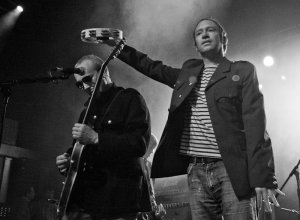
As Cradock windmills across his guitar you realise he may have
been a Jam fan, but the Jam's antecedent was the Who and within his
own band he can fulfill that agenda too.
Fowler's searing r'n'b roar rips through Riverboat Song, beefy
power-rock versions of album tracks like You've Got It Bad and
Circle, they throw in the Stonesy 40 Past Midnight (a complete
rip-off of Jagger and Richards’ Lets Spend the Night Together), and
acknowledge their tradition in a devastating version of the Small
Faces’ Song of a Tailor ("sung by Ronnie Lane,” says Fowler
in the interests of historical accuracy) and the Beatles’
Daytripper.
It’s a blindingly good set that you feel, because of its early
Sixties r’n’b yet contemporary Britrock feel, will take them down
a treat Stateside. Like the Stones, it’s a music custom-made for
small sweaty clubs (and Irish centres) as much as stadiums.
Fowler is probably right. You may never see them play a venue this
small again.
“I tell you what,” he has said earlier however, in a statement
that might just put the frighteners up his record company.
“I heard the sound for our next album I really wanted. It was
the other night on the BBC, an old Fleetwood Mac session with Peter
Green [the legendary addled recluse]. Really spare. We want that
sound."
You should get him to produce your next album then?
“Yeah that'd do it,” he hoots. “What a great track record,
Jimmy Miller then Peter Green . . . and Lord Lucan for the third!
Great stuff.”

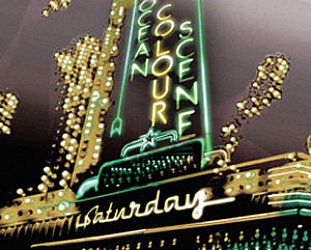
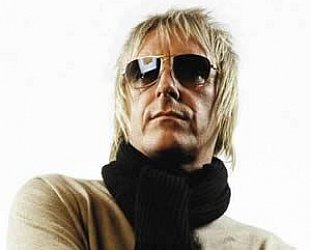
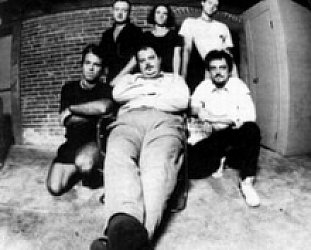
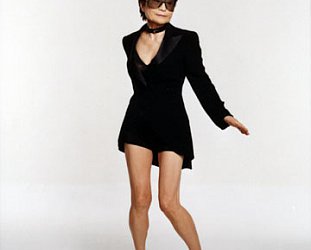
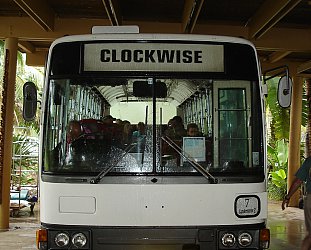

post a comment